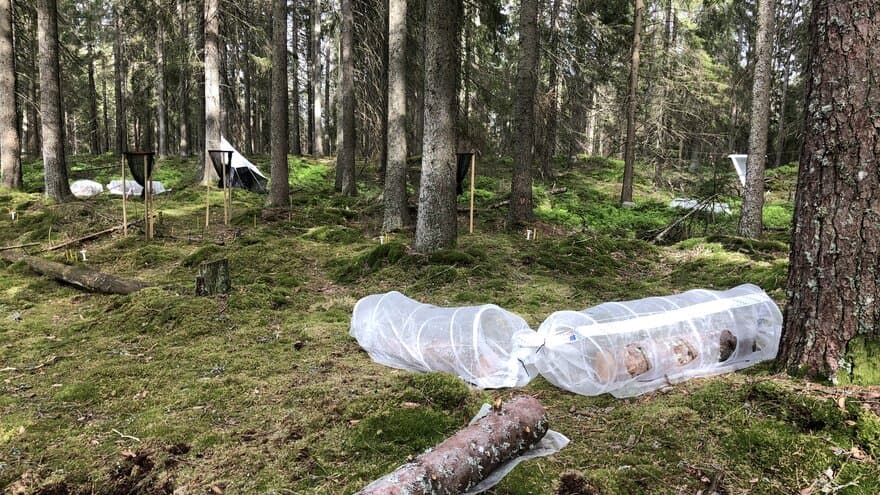The Research Council of Norway / Collaborative and Knowledge-building Project
Background
Boreal forests store major parts of terrestrial carbon pools and house an extensive biodiversity, mediating various ecosystem processes, including carbon sequestration.
In Norway, only a small portion of the boreal forests can be considered as natural forests, as forestry practices of various intensities have been carried out for centuries.
In the EcoForest project, we assess the long-term effects of clear-cutting on species richness and genetic diversity, carbon stocks and dynamics, and processes linking these.
We use a paired plot approach comparing 12 stands from near-natural forests which have not been impacted by clear-cutting, with mature stands that have been through one cycle of clear-cutting.
We evaluate and quantify differences in forest structure (Work Package 1; WP1), carbon sequestration (WP2), community diversity (WP3), genetic diversity (WP4) and biodiversity functions (WP5).
Clear-cutting (CC) is by far the dominant harvesting method in Norway, whereas continuous cover forestry (CCF) may become more widespread in the future. Thus, we will initiate a long-term experiment to assess effects of CC versus CCF and undisturbed control on carbon sequestration and forest biodiversity (WP6).
The project has a strong focus on outreach and will establish a platform that enables open and direct communication of research findings to forestry and environmental organizations. The aim is to evaluate management guidelines that support biodiversity and C storage in forested ecosystems (WP7). The research is conducted in close collaboration with partners from the forestry industry, environmental organizations, and other stakeholders.
Goal
We study the long-time effects of forestry on biodiversity (insects, fungi, bacteria) in soil and dead wood, as well as carbon storage and differences in ecosystem functions. The project compares near natural forests that have never been clear-cut with previous clear-cut forests that are now grown to a mature state.
The aim is to provide a comprehensive overview on how forestry practices influence forest and guide future sustainable forest management practices and climate mitigation strategies.
Partners
University partners:
- University of Oslo (project coordinator)
- Norwegian University of Life Sciences (NMBU)
- Norwegian Institute of Bioeconomy Research (NIBIO)
- Norwegian Institute for Nature Research (NINA)
Collaborative partners:
Particpating NMBU-researchers
More about the project
For more information, please visit our external project webpage: ecoforest.no (in Norwegian).
